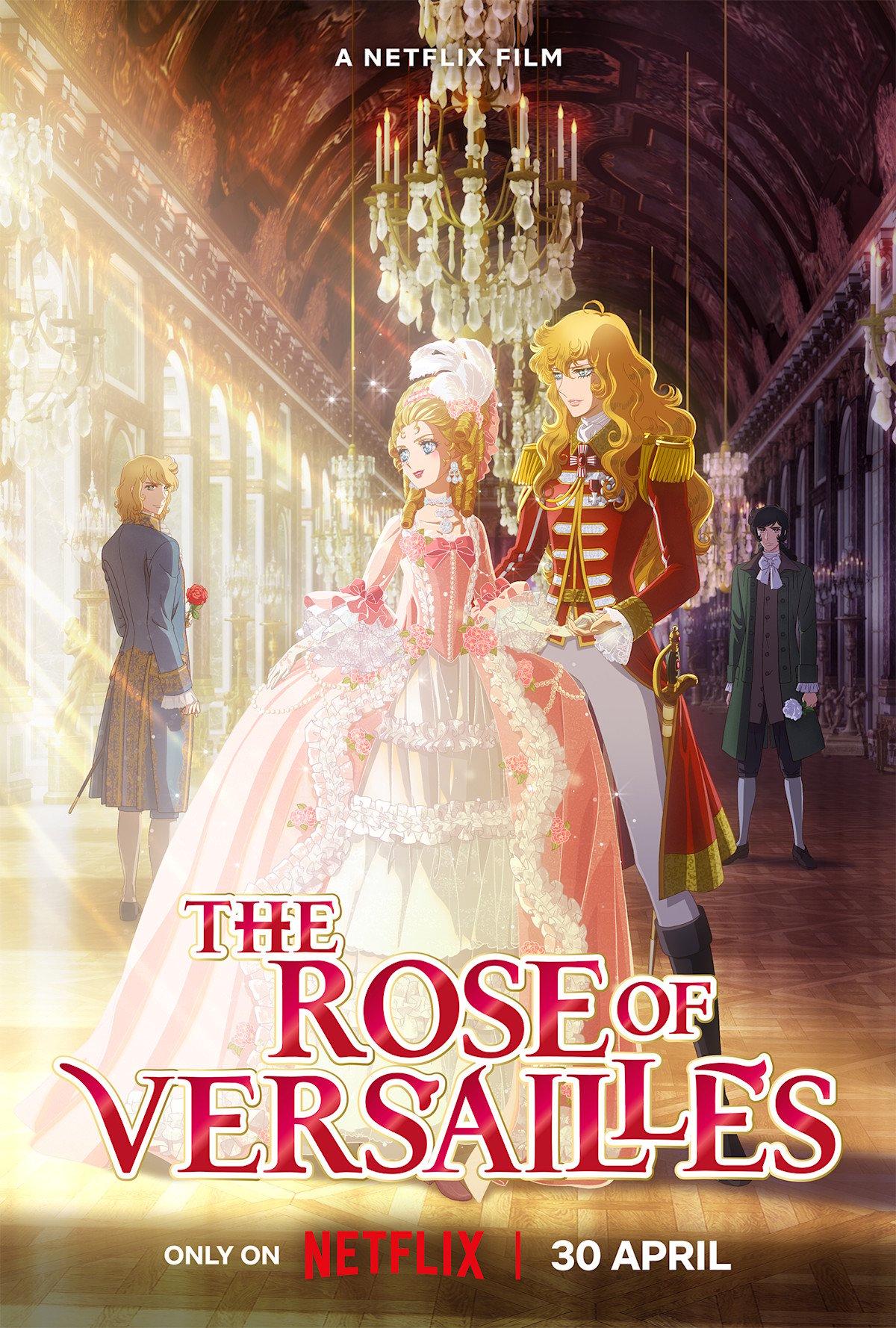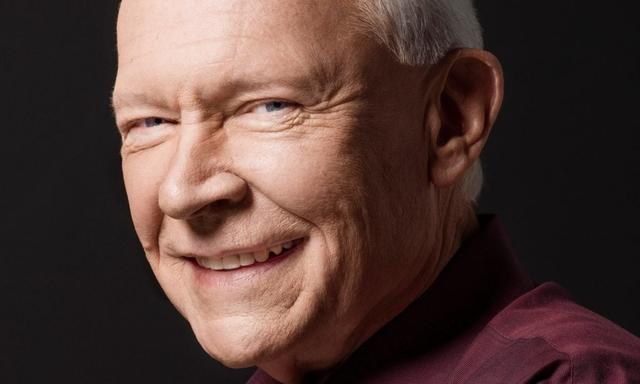If you click on a link and make a purchase we may receive a small commission. Read our editorial policy.
Ahead of Netflix reboot, here's how the historical fiction anime Rose of Versailles helped me revisit my own history as a 'tomboy' and my "gender troubles"
How the Rose of Versailles anime helped me overcome being typecast as a teenage tomboy and encouraged me to question my gender identity.

Popverse's top stories
- "And my axe!" Lord of the Rings star John Rhys Davies says there's one world leader who deserves Gimli's iconic weapon
- Walton Goggins promises something “profound” in the Fallout season 2 ending
- Dispatch Switch censorship may be driven by Japan and AdHoc's resource limits — not Nintendo
I wish my 13-year-old self had the experience of the rainbow-lightbulb flickering when the young Oscar posed on the stairs in her crisp cream royal uniform. I already knew myself as queer – had my cartoon queer crushes and icons – by the time my 29-year-old self watched the 1979 Rose of Versailles anime (directed by Tadao Nagahama and Osamu Dezaki) for the first time, but seeing Oscar’s androgynous “gender trouble,” as at least one Rose of Versailles dissertation puts it, was something my teen self needed.
Now the celebrated anime studio MAPPA (Attack on Titan, Chainsaw Man) has contributed a new The Rose of Versailles animated film in 2025 (both original Japanese and English dub to be released on April 30 on Netflix), returning a groundbreaking manga-based story into the consciousness, transporting me back to the memory of Oscar shining in her ironed uniform.
How a Marie Antoinette manga became something more with Rose of Versailles

While mangaka Riyoko Ikeda was getting paid half of what male mangaka were making during the era of ūman ribu (women’s liberation movement), she drew and wrote the ornamental Rococo-styled The Rose of Versailles, serialized in Shueisha's shōjo manga magazine Margaret 1972 to 1973. It is hailed as a seminal political-driven shōjo, which was adapted into the 1979 anime series that became my first exposure to the material years later. Ikeda’s fictional history romance charts the coming-of-age of two women: the tragic Queen Marie Antoinette, initially intended as the centerpiece protagonist, before she eventually shared her story with Oscar, a noblewoman who was raised as a son and ascended as Marie’s commander of the royal guards before she eventually joins the French Revolution.
As an adult, maybe years of cartoons and anime ignited the instinct I was engaging in pilgrimage viewing, being that Oscar was a pioneer of the framework of other cartoons I’ve seen: the school girl who decided to be a 'Prince' and wear a boy’s uniform in Revolutionary Girl Utena, the aesthetics of Steven Universe, or Jesse of Team Rocket bearing a male uniform next to a dolled-up James in Pokémon, all of which bear the fabrics of The Rose of Versailles. Oscar certainly made me more aware that I tend to gaze at women in uniforms or masculine-presenting clothes. I seem to like sopranos in masculine-presenting outfits when watching Met Opera productions, so I found myself disappointed that plans for an opera adaptation of The Rose of Versailles, according to an old 2001 report, did not take flight because then I would be insufferable about the leading lady – or hypothetically, a gender non-conforming performer if the casting director pushes for something radical – in Oscar’s uniform by the time I was 30.
How Rose of Versailles helped me come to terms with being a teenage tomboy

The Rose of Versailles helped me unpack why I, and so many others, drink up historical fiction. It's because it can insert us into historical narratives as agents of change who push the world to spin forward. In Ikeda’s recent words, “I found it difficult to fully understand the perspectives and experiences of young male soldiers. This led me to make Oscar a woman.” If I had chanced upon The Rose of Versailles as a teen, maybe if I was bitten by the anime nerdom bug much earlier, my hyperfixation would have consumed my waking hours to the point of my strict father confiscating those among “frivolous comics and cartoons.” The Rose of Versailles flowed with an abundance of everything my young and adult self dreamed of: history and complicated women.
It’s a story about a woman, raised as a son by a father in need of an heir, whose male-presenting uniform is a fabric of her identity, placing her in a nuanced in-betweenness of gender. When aggressive parents attempting to feminize me into pink and dresses, I probably pined for a fictional beacon in Oscar, when I was teenage 'tomboy,' a word that was then my only language to apply to myself even as I harbored a subconscious distaste for because I sensed my environment saw the 'tomboyishness' of masc-presenting clothing as a phase rather than an exploration.
How Rose of Versailles questions gender identity

I experience an emotional release watching the first episode where Oscar confronts a different hardship in an anime-exclusive incident not in the manga. Her father, who raised her as a son after fathering several daughters, demands a recalcitrant Oscar to serve the royal guards, for Oscar to be his upper-class masculine ideal. She first refuses the uniform and bears her father’s physical punishment. Oscar’s maid diagnoses her malaise as an inner “battle between man and woman,” but how does Oscar answer? When her servant and bestie Andre asks Oscar what she wants, the anime fools you into thinking that Oscar wants to be a woman. But in refutation of the assumption, Oscar adorns herself with the royal guard uniform and “leaves womanhood behind.”
It’s not out of filial piety, as she makes clear, but the implication that she finds her agency is best explored in a male presentation. To add to this complexity across the manga, Oscar experiments with and ponders womanhood on her own terms, such as donning a gown to dance with a love interest. The manga and its adaptations draw a distinction between a paternal force pressuring her into a dressy housewifery and Oscar deciding to dance in a ballgown with a man she loves for a night.
While Oscar canonically denies herself as a lesbian and the material may be read as heteronormative and essentialist today, the manga still has Oscar contemplate – and sometimes toy with – romantic social boundaries. In the manga, she reproaches Rosalie, a commoner woman she sees as a sister, for her unrequited love for her, but then later, she contemplates marrying Rosalie in another life if she were “born a man.” The anime regretfully omit a manga spree where Oscar waltzes and flirts with women (likely stand-ins for Oscar fangirl readers) at her forced engagement ball, like a coveting rake, and the (flawed but not unmeritable) 1979 live-action movie adaptation (directed by Jacques Demy and written by Patricia Louisianna Knop) that came out the same year as the anime elects to have her smooch a noblewoman.
What impressed me about Ikeda’s tale is also its own sense of class-gender complexities, as unraveling in a character arc where she leads the commoner French Army and has to prove her mettle as a woman all while examining – and then bidding adieu to – her nobility privilege and power. Both the manga and anime Rose of Versailles renders more than a history lesson to ace the French Revolution high school exam. It implores its young readers and viewers to awaken to the class and gender politics of their time, one gender-trouble at a time.
Want to know what's coming up next in pop culture? Check out Popverse's guides to:
Follow Popverse for upcoming event coverage and news
Find out how we conduct our review by reading our review policy
Let Popverse be your tour guide through the wilderness of pop culture
Sign in and let us help you find your new favorite thing.
















Comments
Want to join the discussion? Please activate your account first.
Visit Reedpop ID if you need to resend the confirmation email.